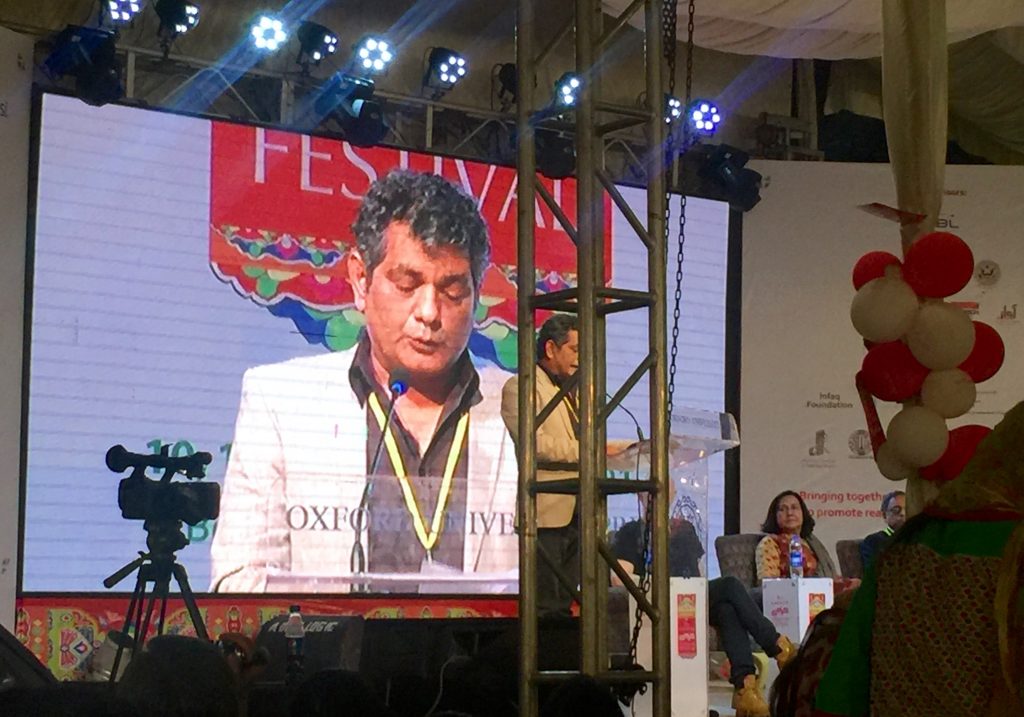Illuminating the Dark Sky With a Pen
“Most writers and journalists love nothing more than their own byline in print,” admitted Mohammed Hanif, in his keynote speech at the closing ceremony of the Karachi Literature Festival. “They don’t really think about the oppressive dark sky of our existence.” The writing of his friend Mirza Waheed had inspired Hanif’s keynote speech.
Hanif said that sometimes he felt that the written word couldn’t change anything. “It can distract you from what you really, really want to change in your life. Yes, I do know that some words can illuminate the dark sky for a moment, in which we can see our world in bright relief; we can see it in its entirety. But then it grows dark again.”
Hanif compared the process to the view seen from an aircraft as it descends on Karachi at night. Many of us may be familiar with the view of Karachi’s skyline as seen from a descending aircraft. There are islands of illumination, while the rest is under darkness. “We spend the time until the next illumination by trying to remember that bright outline of a world that we glimpsed at that moment,”he continued. “Why is the sky so dark? Why does our pen need to illuminate it?”
Hanif’s speech touched upon how he is repeatedly asked by fans about whether he has received any threats. “‘Don’t they say anything to you?’”, he said, quoting his fans. “We both know what they mean by ‘they’. We know what they mean by ‘say anything’. ‘Do you worry about someone following you when you go for your school run?’” Hanif argued that if the answer to this is no, then whatever you are writing isn’t worth it, because “if the sun is shining and the sky is blue, your pen can’t really illuminate much.”
He pointed out that “what we perceive as our enemy, the guardians of this dark sky above us, are also citizens like us. They might have the ability to tap our phones, or hack into our email accounts, but surely they also watch kitten videos on YouTube. They may have to break our bones one day, or take an electric wire to our private parts, but I assure you, they have the same worries about where to find a good math tutor for their children. If they are trying to scare us through abductions, could it be that they are also scared of us?” Hanif argued that it is this question that brings us together.
“A punch-line may be a matter of life and death when you are trying to finish a paragraph, but you don’t want your life to be a punch-line to a long running joke, which starts with ‘you should have known better,” he said. Hanif emphasised that we must learn to respect institutions, faiths, traditions and, at times, the goons on our streets as well.
Commenting on bravery in a writer, he reflected that if a writer were to be brave, it would not necessarily mean that he was good at his job. It was only natural to feel afraid if one read the newspaper and was aware of all the things that could happen to them.
Hanif said that although he felt he had a responsibility as a journalist, he did not believe he had any responsibility when he started writing fiction. As a novelist, he said his only responsibility was not to bore readers. “But now I believe that I must occasionally bore you. I must tell you things you’d rather not hear.”
The writer is a staffer at Newsline Magazine. His website is at: www.alibhutto.com




